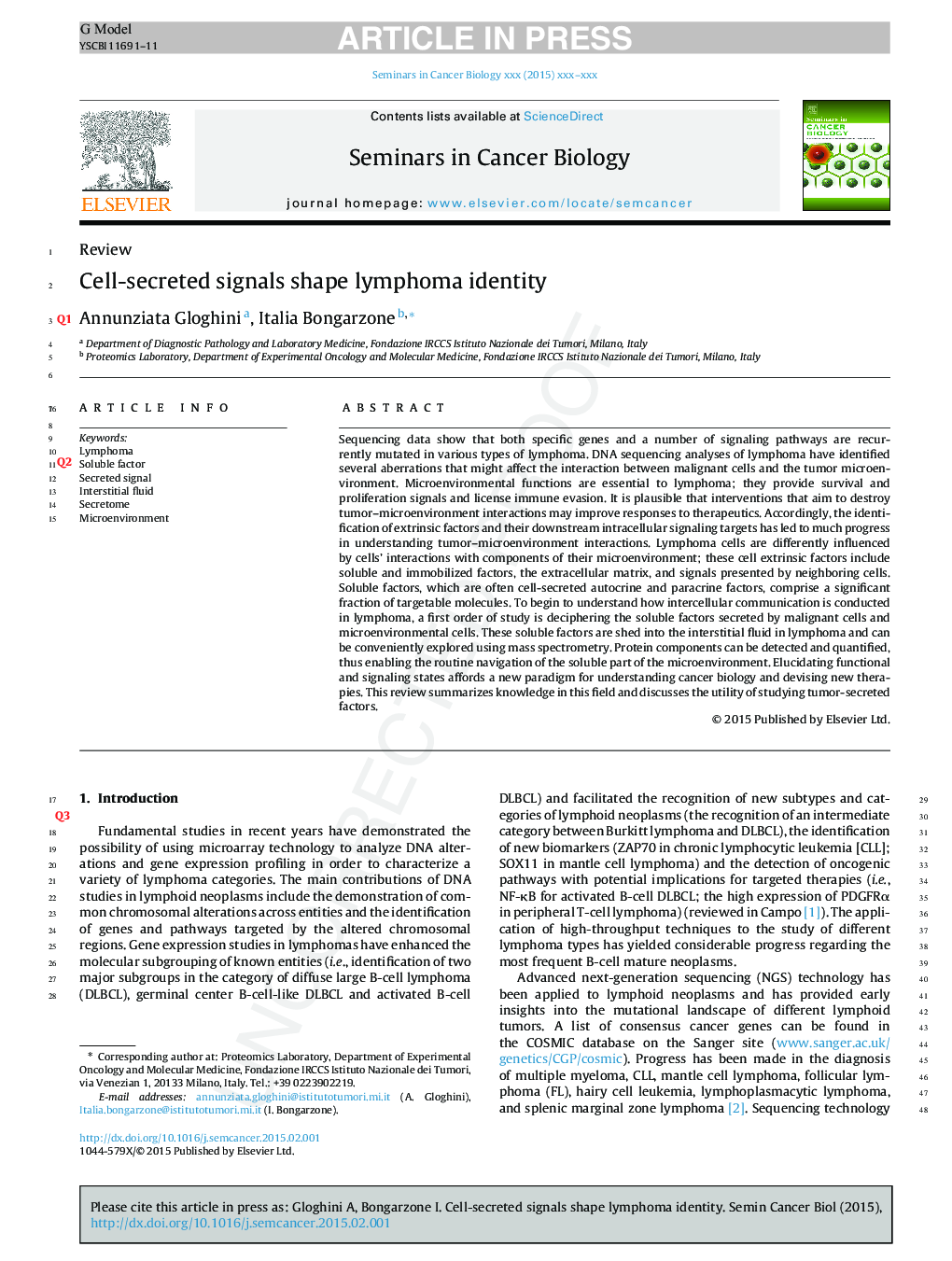| Article ID | Journal | Published Year | Pages | File Type |
|---|---|---|---|---|
| 8362246 | Seminars in Cancer Biology | 2015 | 11 Pages |
Abstract
Sequencing data show that both specific genes and a number of signaling pathways are recurrently mutated in various types of lymphoma. DNA sequencing analyses of lymphoma have identified several aberrations that might affect the interaction between malignant cells and the tumor microenvironment. Microenvironmental functions are essential to lymphoma; they provide survival and proliferation signals and license immune evasion. It is plausible that interventions that aim to destroy tumor-microenvironment interactions may improve responses to therapeutics. Accordingly, the identification of extrinsic factors and their downstream intracellular signaling targets has led to much progress in understanding tumor-microenvironment interactions. Lymphoma cells are differently influenced by cells' interactions with components of their microenvironment; these cell extrinsic factors include soluble and immobilized factors, the extracellular matrix, and signals presented by neighboring cells. Soluble factors, which are often cell-secreted autocrine and paracrine factors, comprise a significant fraction of targetable molecules. To begin to understand how intercellular communication is conducted in lymphoma, a first order of study is deciphering the soluble factors secreted by malignant cells and microenvironmental cells. These soluble factors are shed into the interstitial fluid in lymphoma and can be conveniently explored using mass spectrometry. Protein components can be detected and quantified, thus enabling the routine navigation of the soluble part of the microenvironment. Elucidating functional and signaling states affords a new paradigm for understanding cancer biology and devising new therapies. This review summarizes knowledge in this field and discusses the utility of studying tumor-secreted factors.
Related Topics
Life Sciences
Biochemistry, Genetics and Molecular Biology
Biochemistry
Authors
Annunziata Gloghini, Italia Bongarzone,
